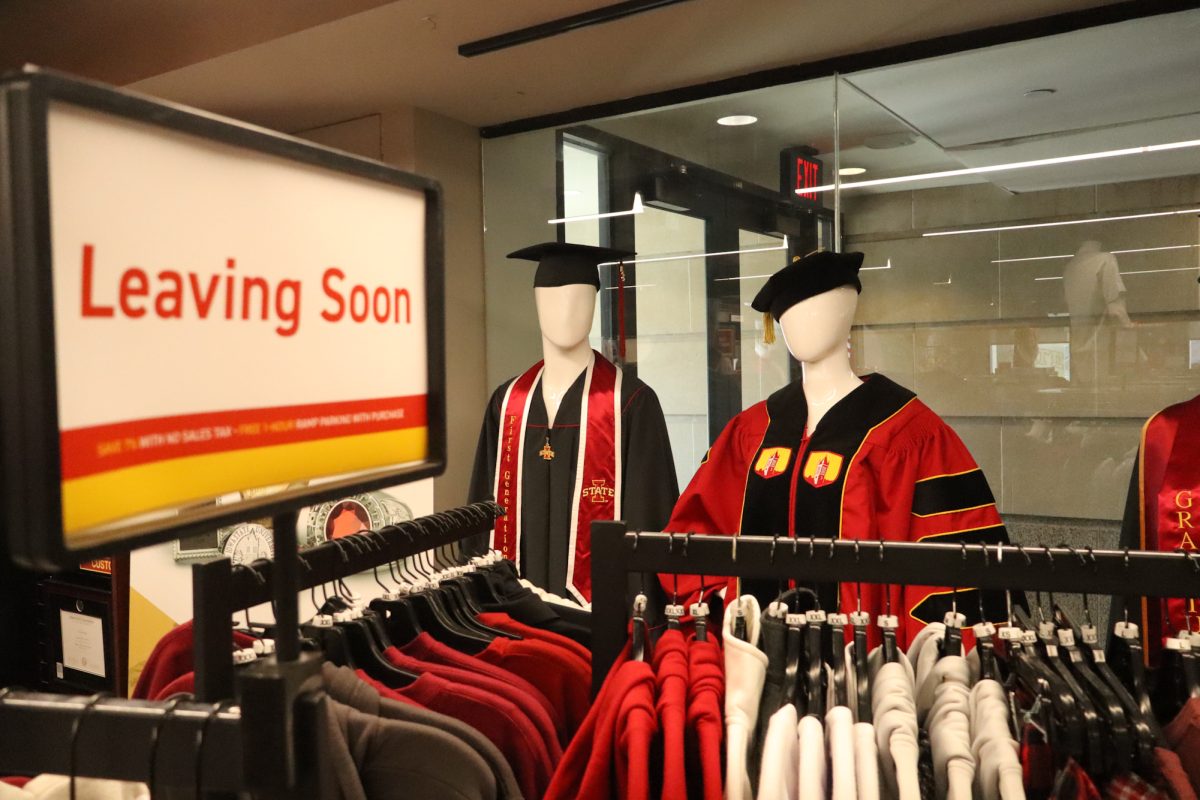Internships can cost students
Dollar Bill
April 15, 2013
The process of attaining professional experience throughout a student’s college career can be an extensive process with many factors to stay on top of.
Whether experience is gained via an internship, co-op or at a job shadow, the significance it has in securing a future position in one’s field is ever increasing.
To best utilize one’s time at Iowa State to meet academic requirements, or to solely gain professional experience, preparation from the get-go is essential.
“Starting their freshman year, students should be identifying things that they can be doing during the school year or during the summer months to get relevant work experience to combine it with their academic preparation,” said Loni Pringnitz, program coordinator for human sciences student services at Iowa State.
By doing so, a student can gain an upper-hand in landing a coveted position down the road.
“The more experience they can get, the more marketable and competitive they’re going to be when they’re interviewing for full-time positions because the number one thing most employers are looking for is that relevant experience, and the more you have, the better,” Pringnitz continued.
Due to the significance that quality experience can provide, many colleges, departments and majors at Iowa State require a form of professional experience in order to graduate.
Kim McDonough, program and internship coordinator for the Greenlee School of Journalism and Communication, illustrated why an internship requirement is in place for journalism and advertising majors.
“One reason that it is required is because we want to give students some hands-on experience outside of the classroom before they graduate from the program,” McDonough said.
Also, experience gained outside of the classroom can act as a good resume booster.
“The other thing we want to do is help them build their portfolios because we know that that will help them once they graduate,” McDonough added.
Whether or not a student’s specific major requires it to graduate, professional experience can also serve as a feeling-out process when contemplating career paths.
“From my point of view, it’s almost necessary to have an internship and have it early, too. That way you can really figure out if that’s what you want to do for the rest of your life,” said Lance Goetsch, senior in agronomy and international agriculture.
Goetsch has had three internships during his schooling.
While gathering professional experience can prove beneficial in the long run, it does come with a cost.
In an instance where an internship is completed for a requirement, “you are still paying for the academic credits that go [toward] graduation,” McDonough said.
As for all other coursework, the assistance of the Free Application for Federal Student Aid is not an option to fund these credits unless full-time student status is achieved, a situation often encountered with summer internships.
To claim full-time status, 12 credits must be maintained throughout the given semester.
When FAFSA is not an option to pay for a student’s academic credits, “it’s up to each individual student and how they’re financing their college education. That’s what it comes down to. Each student is going to be unique,” Pringnitz said.
Student loans and scholarships can be options for funding academic internship credits.
Outside of paying for academic credit, other costs, both tangible and intangible, are aspects to consider for all students planning for professional experience opportunities.
With many opportunities existing outside of Iowa, planning for housing is an important aspect to consider.
“You might find some inexpensive housing in the smaller towns if you’re working in a smaller town. If you’re looking at a New York City or a Los Angeles internship, you could be looking at a couple to a few thousand dollars a month for rent,” McDonough said.
To save money from a housing perspective, seeking out alternatives to a traditional apartment setup is one way to do so.
“I would encourage students to look at college and university housing in the areas of which they’re completing their internships,” McDonough added.
Many universities are willing to house students who are on internships, an often less-expensive alternative to an apartment.
“Also, looking at internships in areas where you have family members or friends [is another option],” McDonough said.
Budgeting costs for food, transportation and a professional wardrobe are also preparations to address prior to one’s internship.
Outside of tangible costs, opportunity costs are also important to look at. In other words, the decision of which option is most preferable by factoring financial costs, what other options are available and what can be gained from a particular experience.
“We have students in our apparel merchandising department that go out to Los Angeles and New York for unpaid internships, and they’re paying for housing in L.A. or New York, but the experience is so valuable and they want to be on the East or West Coast for full-time employment,” Pringnitz said.
Many internships nowadays are trending toward being paid positions, which can help offset costs for students.
“All of [my internships] have been paid. The College of Agriculture and Life Sciences does very well, I believe, at providing internships that are paid,” Goetsch said.
The College of Engineering and the College of Business at Iowa State require all internships to be paid positions, and other colleges at Iowa State have put forth a concerted effort to provide students with as many paid internships as possible.
“[At the College of Human Sciences] we’d prefer all internships to be paid, and that’s one thing we’ve continued to strive for,” Pringnitz said.







